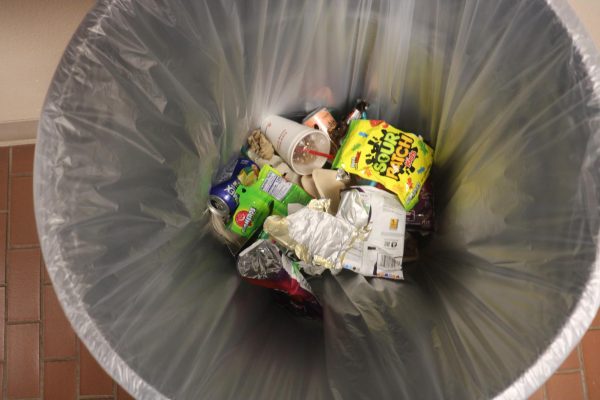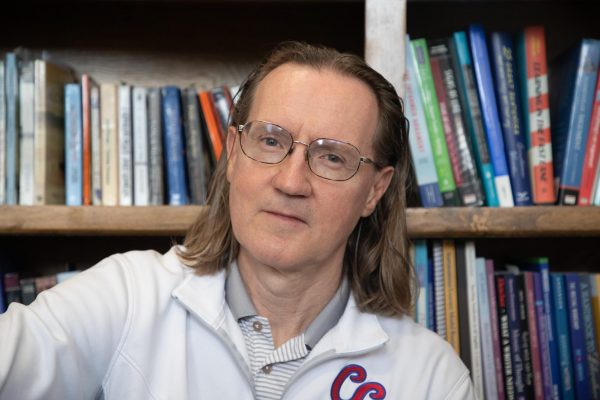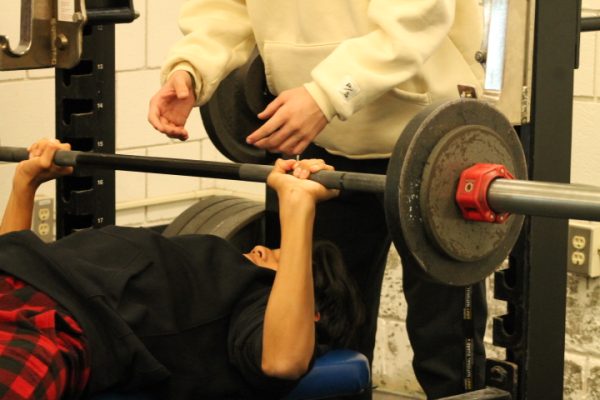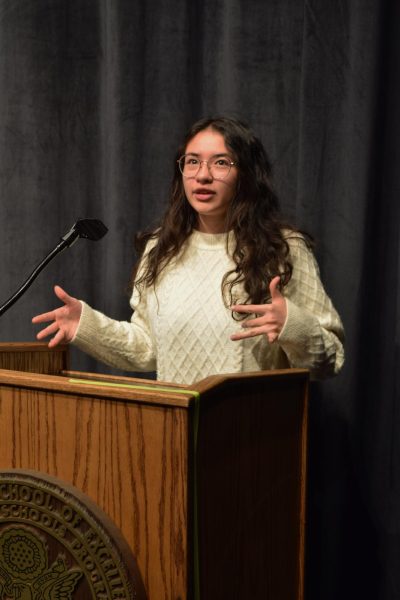Anne Zurcher Amplifies Accessibility
American Sign Language Teacher Pushes Creek to Hire Deaf ASL Teacher
ASL teacher Anne Zurcher teaches one of her level one ASL classes. She makes sure to be aware of any students with any hearing difficulties. “Those little things that you might not think of come naturally and are more obvious to me now that I’ve been involved in the Deaf community for a long time,” Zurcher said.
December 20, 2022
A video plays with bright lights, too many colors, and a pace too fast to follow, but at the bottom of the screen there’s something different: closed captions.
American Sign Language (ASL) teacher Anne Zurcher always makes sure to add closed captions to support any students with hearing difficulty, making her one of the most in demand teachers at Creek by students with any hearing difficulties.
ASL is one of the most sought after classes at Creek, and one of the reasons demand is so high is because Zurcher is the only teacher. She hopes to improve inclusivity at Creek which would start with hiring another ASL teacher – preferably someone who is deaf.
“I would love [if Creek hired a deaf teacher],” Zurcher said. “I’ve talked multiple times about it. I think it would be amazing, especially for the upper levels [of the class] and to expand the program.”
Given that Zurcher can only teach five class periods, two sections of ASL 1, two sections of level two, and one section of level three, hiring another teacher would open opportunities such as the ability to offer ASL to more students.
“ASL is not my native language, English is my native language,” Zurcher said. “So, I believe that deaf people who have ASL as their native language would prefer for that to be who’s teaching the language.”
The deaf community includes people with all types of hearing loss. Some members are “capital D Deaf,” according to Zurcher. These individuals use ASL as their primary means of communication and are part of the deaf community, whereas deaf is the medical definition of hearing loss.
“The reason the deaf community wouldn’t love or is maybe a little against a hearing person [teaching sign language] is just because of their culture and their strong ties to the [deaf] community,” Zurcher said.
“But, [the deaf community] gets excited when somebody is passionate about [ASL] and wants to teach it and have kids get excited about it, so I think that they’re understanding, but I think their first preference would be a deaf teacher.”
Zurcher believes that educating a wider range of students is important to build a stronger sense of inclusivity at Creek.
“I love teaching sign language here because I’m giving awareness to all of these students who might not know about deaf culture or how important it is to include those people,” Zurcher said.
Junior Sydney Soderholm-Hudson is hard of hearing, and she appreciates how Zurcher creates an environment in her classroom where students feel supported. She believes that Creek could be more inclusive by educating teachers about how to help hard of hearing students.
“[Creek could] have teachers speak to the students instead of towards the chalkboard, so the students have a better chance at seeing the teacher’s lips,” Soderholm-Hudson said via email.
To spread more awareness about ASL, Zurcher plans to put up QR codes around the school so that students can learn a phrase or word in ASL.
So far, Creek and Grandview High School (GHS) are the only schools in the district that offer ASL, and if a student needs an interpreter the student has to go to GHS.
Administration is currently looking into installing a screen on intercoms throughout Creek so that announcements are readable for anyone who cannot hear the announcements.
Although Zurcher is happy in her current position as a teacher, she would love to become an interpreter one day, and she emphasizes the importance of students treating everyone the same.
“If a deaf person ever asks, ‘What did they say?’ never say nothing,” Zurcher said. “Make sure you stop and tell them what happened because it’s the worst thing to be left out.”

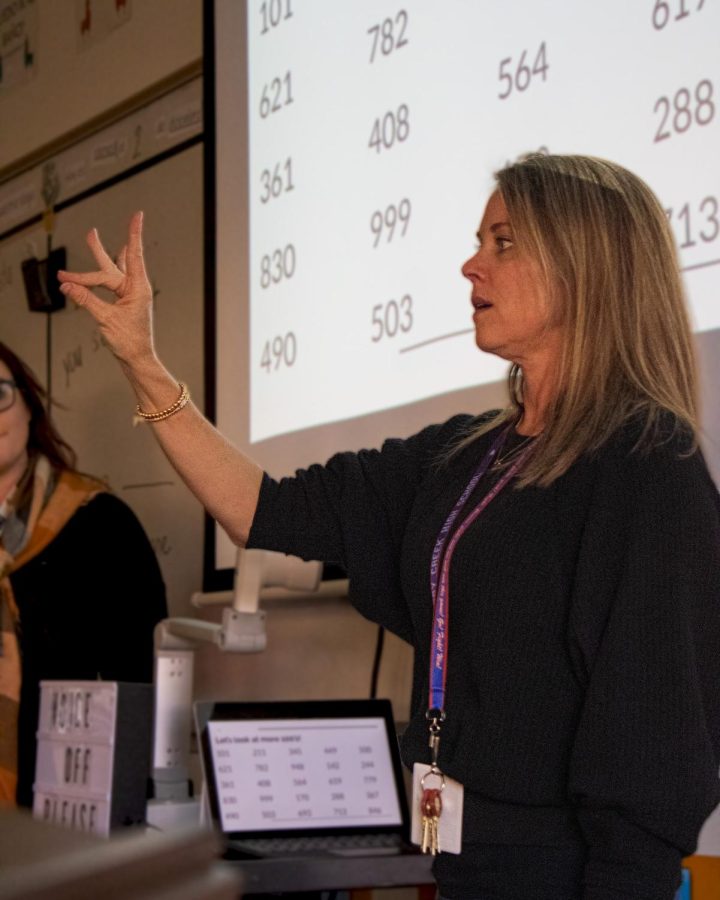
![ON DUTY: Deputy Sheriff Officer and SRO Adam Nardi poses with Riley after Riley is sworn in by the Arapahoe County Sheriff as the district’s first therapy dog. “We go through [schools] and Riley is very popular,” Nardi said. “We talk to administrators and school mental health staff, and if there is a need [for a therapy dog,] we tell them to reach out to us.”](https://unionstreetjournal.com/wp-content/uploads/2022/12/Riley-Nardi-319x475.jpg)
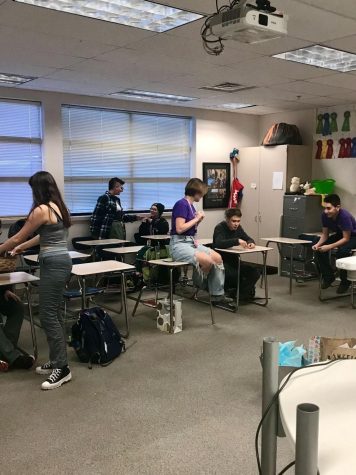
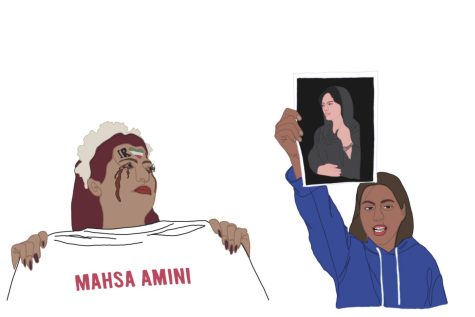
![ON DUTY: Deputy Sheriff Officer and SRO Adam Nardi poses with Riley after Riley is sworn in by the Arapahoe County Sheriff as the district’s first therapy dog. “We go through [schools] and Riley is very popular,” Nardi said. “We talk to administrators and school mental health staff, and if there is a need [for a therapy dog,] we tell them to reach out to us.”](https://unionstreetjournal.com/wp-content/uploads/2022/12/Riley-Nardi-300x447.jpg)
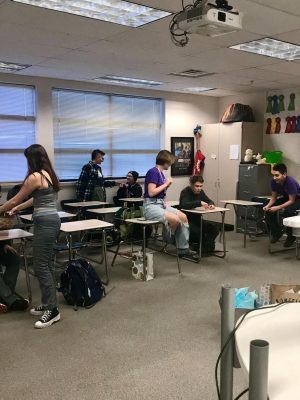

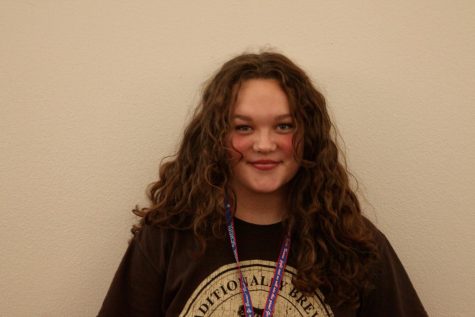
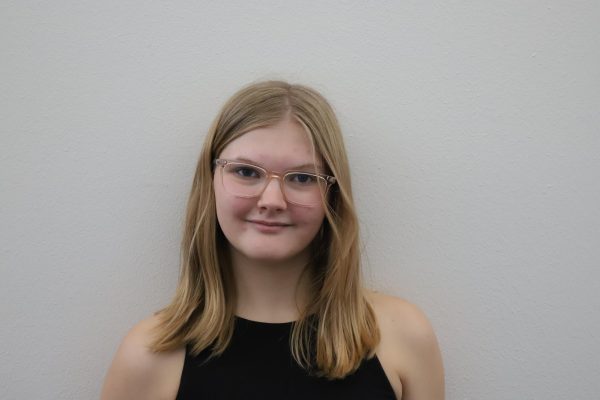















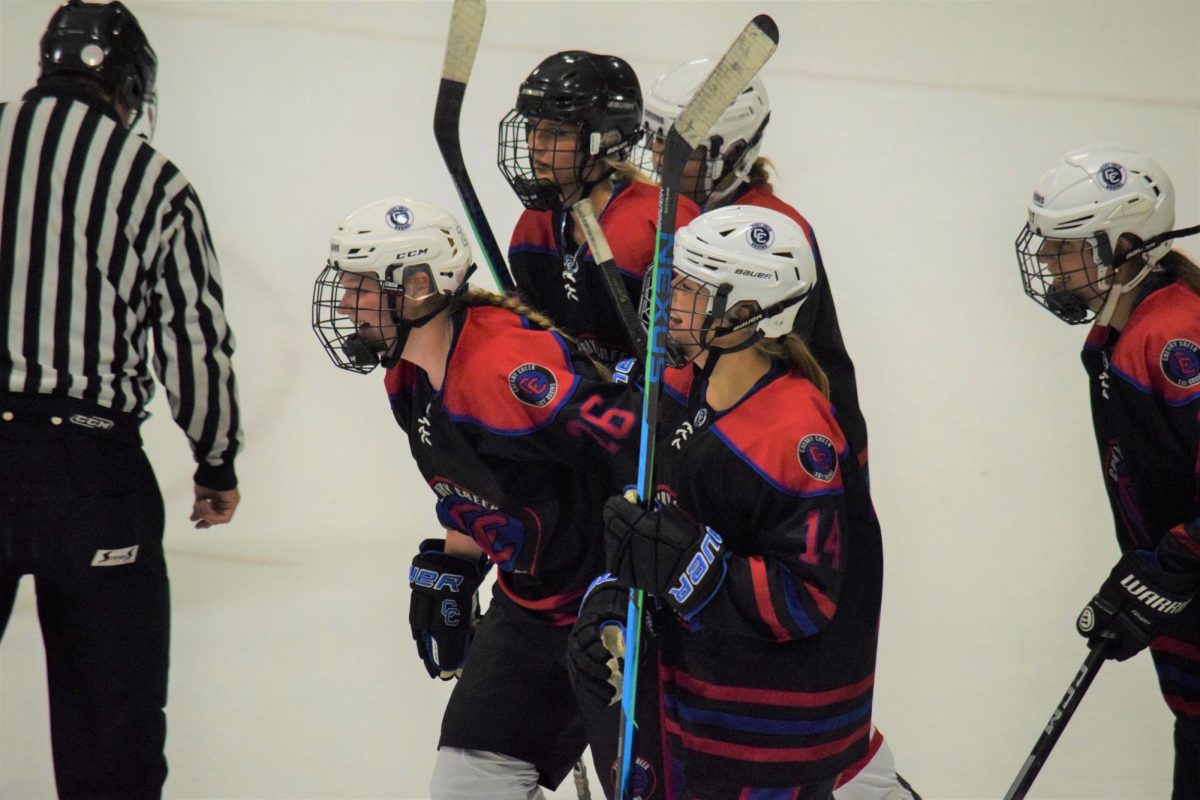
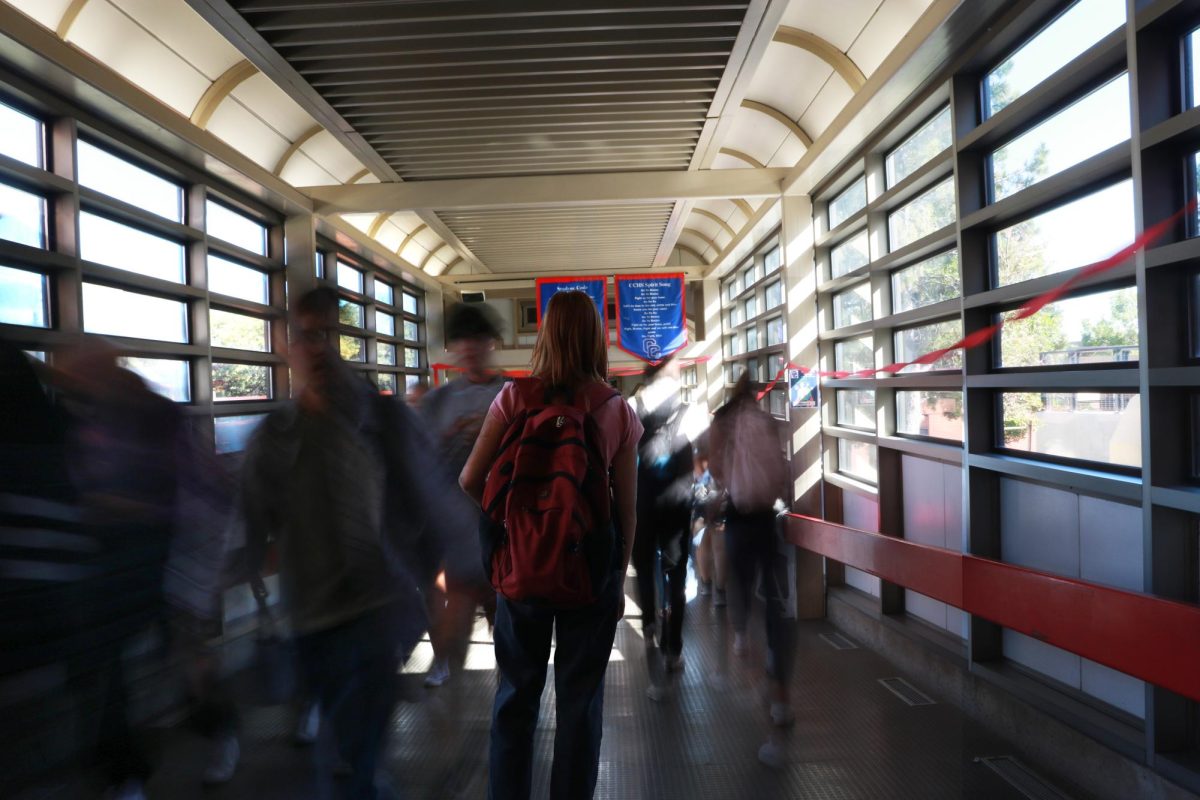
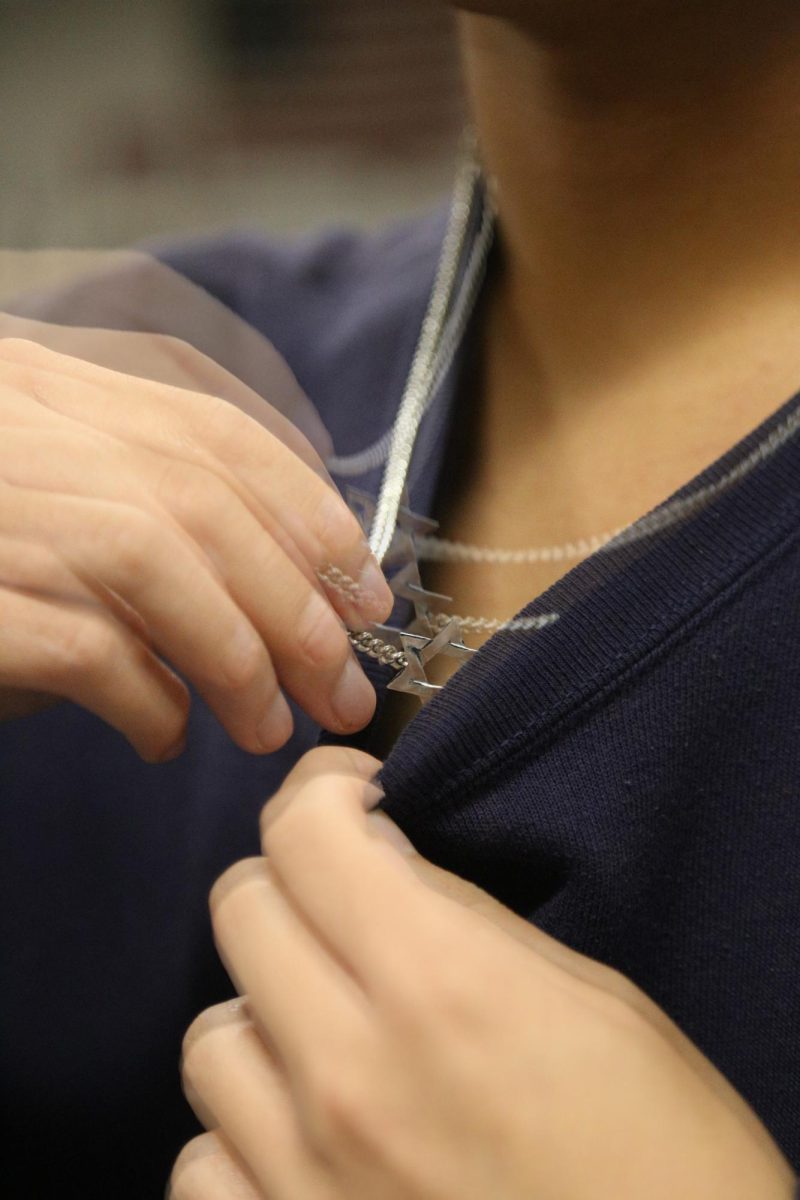
![In a recent surge of antisemitism nationally, many have pointed towards social media and pop culture as a source of hate. “Many far-right people have gone on [X] and started just blasting all their beliefs, Sophomore Scott Weiner said.](https://unionstreetjournal.com/wp-content/uploads/2023/10/antisemitism-popculture-2-1200x675.jpg)
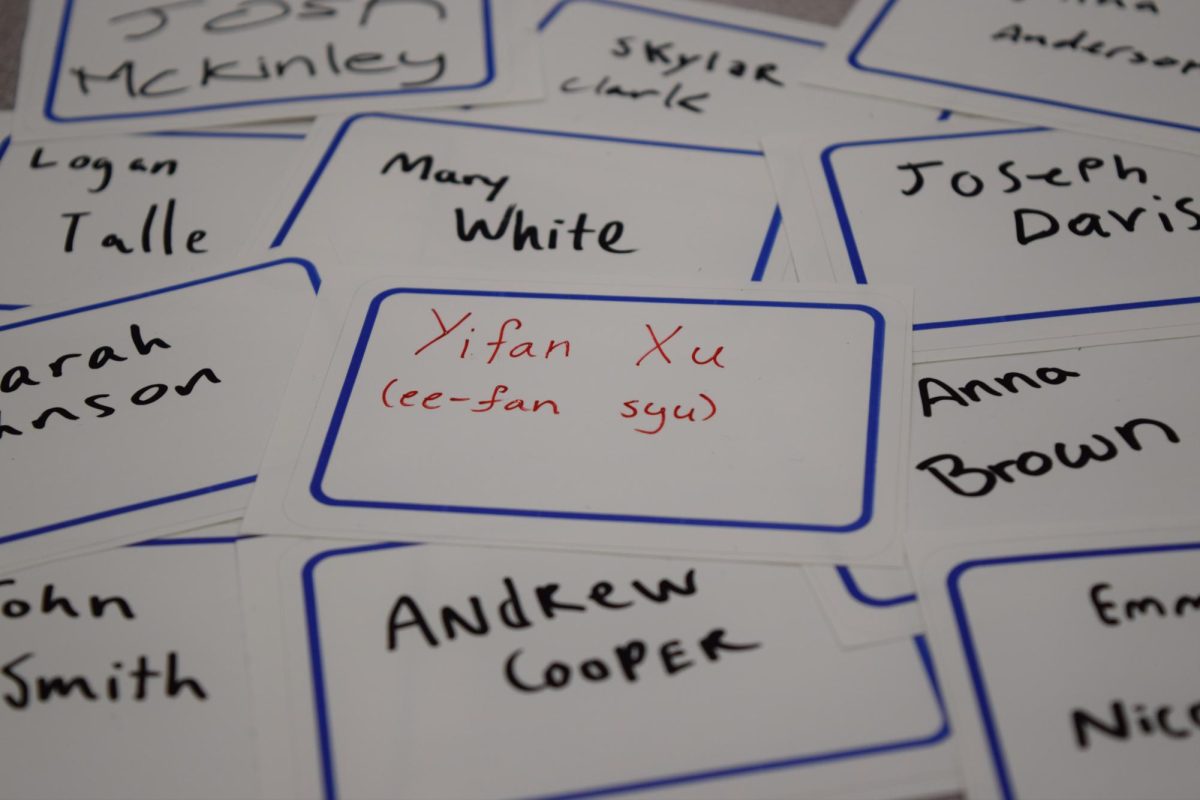
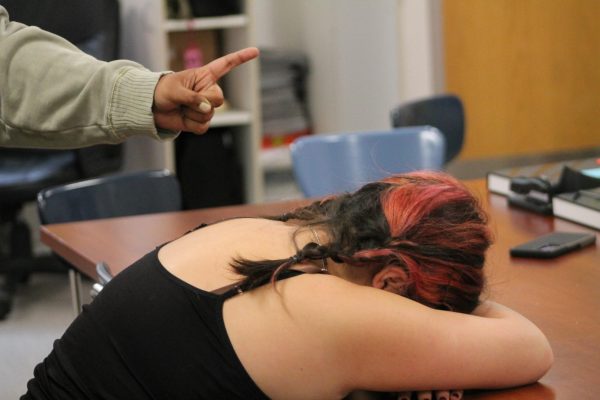
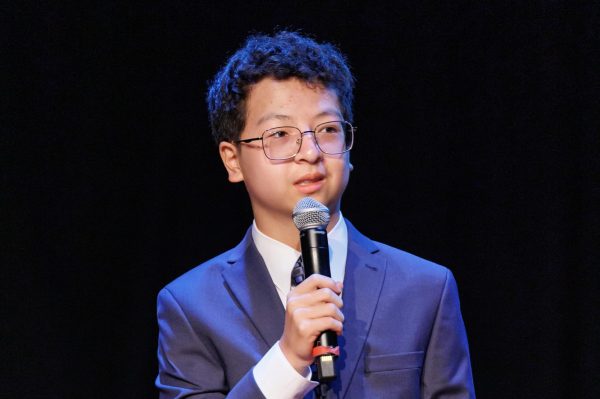
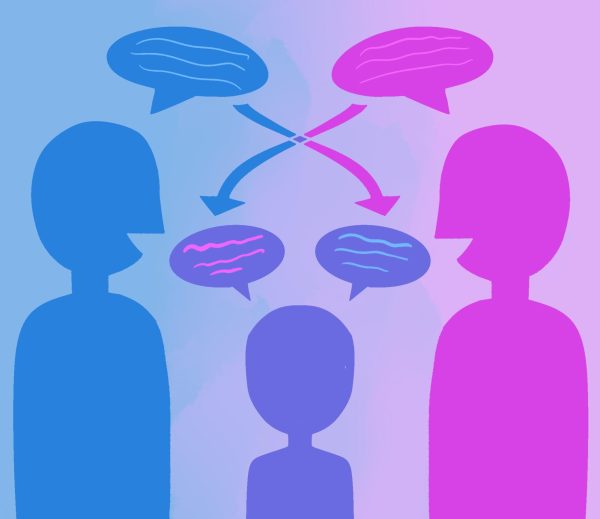
![Creek Unified, the program that promotes inclusion of those with disabilities, through team sports. “I like unified [because] I get to see my friends,” Debolt said. “And I like to play [with] all the boys.”](https://unionstreetjournal.com/wp-content/uploads/2024/04/thumbnail_WrynsEditsFINAL-email-new-keep-final-copy1-600x436.jpg)
